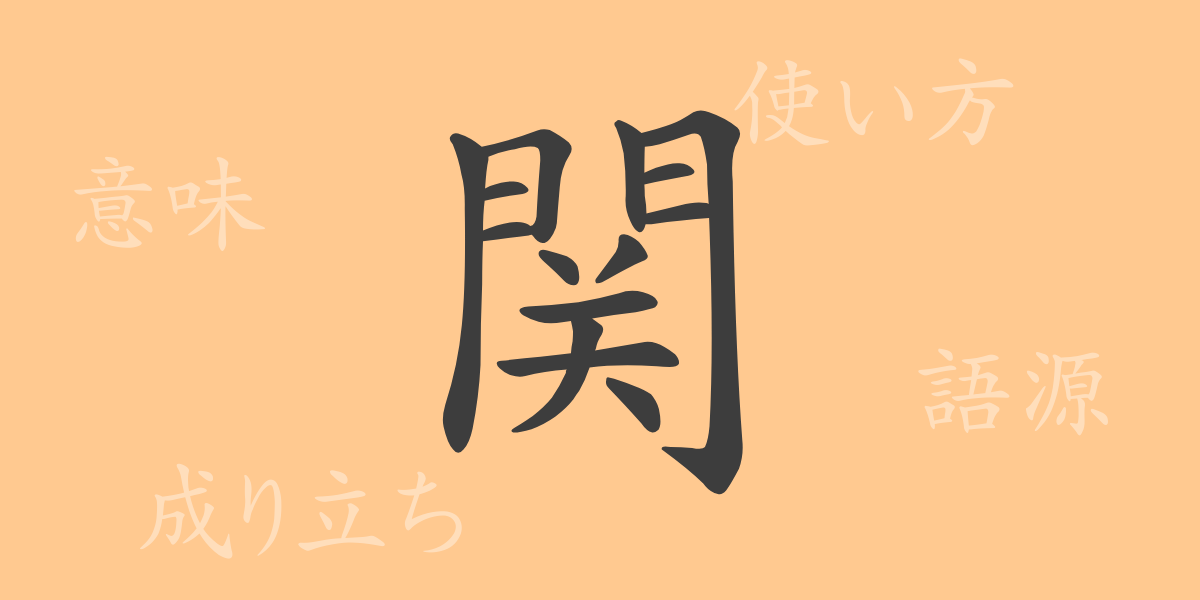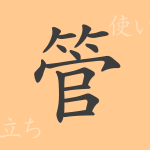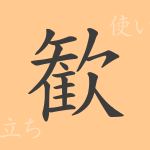The beauty of the Japanese language is shaped by the meanings and histories hidden within each kanji character. In this feature, we spotlight the common Japanese kanji “関” (Kan), delving into its profound allure. This character encompasses various meanings such as connection and curfew, playing an integral role in the daily lives of the Japanese people. Starting with the etymology of “関” (Kan), this article will thoroughly explain its meanings, usages, pronunciations, and even related idioms and phrases.
Origins of 関 (Kan)
The kanji “関” (Kan) originated from the word for a checkpoint in ancient China. A checkpoint was a gate or facility set up at the boundaries of countries or regions to tax or provide security for people and goods passing through. From this functional basis, “関” (Kan) came to mean connection or passage and further evolved to represent abstract concepts such as involvement and relationship.
Meanings and Usages of 関 (Kan)
The kanji “関” (Kan) primarily conveys meanings such as “to close a gate,” “to tie together,” “to be involved,” and “to be important.” These meanings are reflected in the usage of “関” (Kan) in the Japanese language. For example, “関係” (kankei) denotes a state where two or more matters are tied together, while “関心” (kanshin) refers to being attracted to a particular event. Moreover, “関する” (kan-suru) is used to mean concerning a particular matter, and “〜に関して” (〜ni- kan-shite) is often used when discussing a specific topic.
Pronunciations, Stroke Count, and Radical of 関 (Kan)
There are several variations in the pronunciation of the kanji “関” (Kan).
- Pronunciations: In Onyomi it is “Kan”, and in Kunyomi it is “Seki”, “Kaka-waru”, etc.
- Stroke Count: 14 strokes
- Radical: 門部 (Monbu)
Idioms, Phrases, and Proverbs Using 関 (Kan) and Their Meanings
There are various idioms, phrases, and proverbs that include the kanji “関” (Kan), such as:
- 関係 (Kankei) – The state of two or more things being interconnected.
- 関心 (Kanshin) – Interest or attention towards a particular event.
- 関連 (Kanren) – The state of things being connected to each other.
- 閉口する (Heikou-suru) – To be troubled when faced with a problem or difficulty.
- 関の山 (Kan- no -yama) – Used to indicate that a certain level is the limit, and no more can be expected.
Summary on 関 (Kan)
The kanji “関” (Kan), as its shape and meaning suggest, symbolizes concepts such as connection, closure, and involvement. The diverse usages in the Japanese language speak to the rich expressiveness of this character, making it an indispensable element in our speech. From everyday conversations to business settings, words using “関” (Kan) enable us to communicate more accurately and richly. It is our hope that through this article, you have gained a deeper understanding of the depth of “関” (Kan) and how to use it.

























